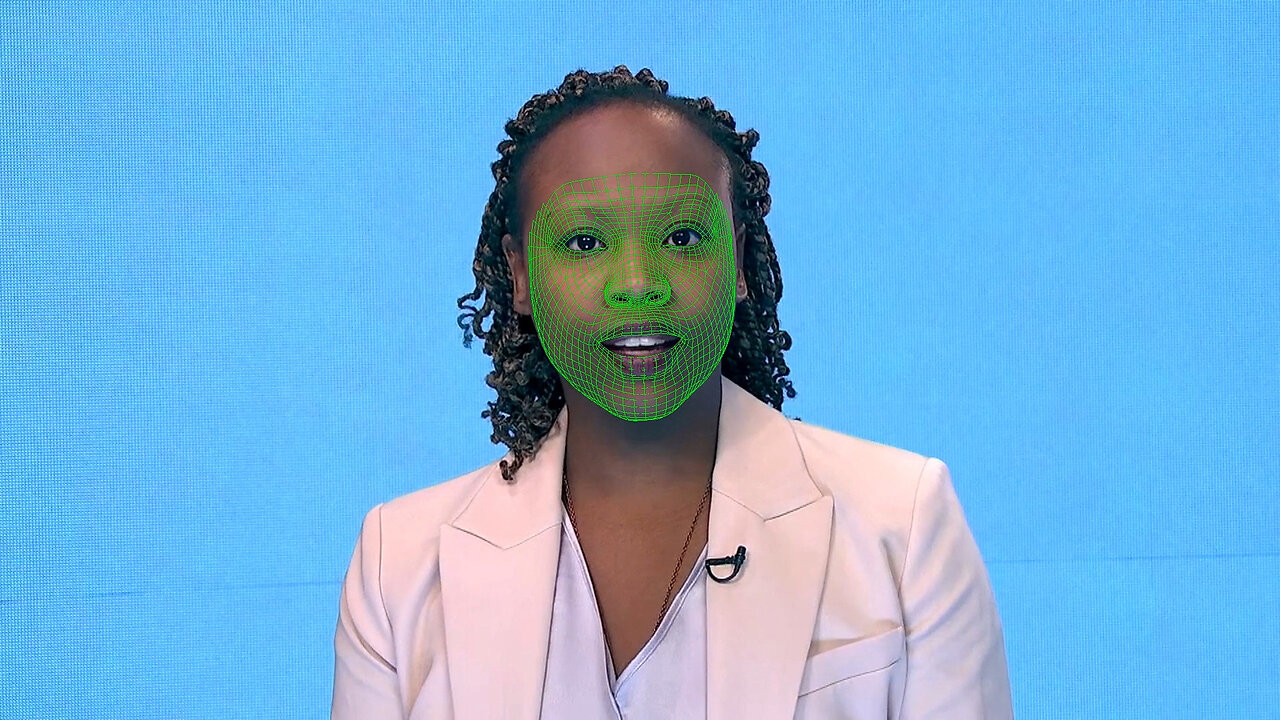Premium Only Content

Deepfaking it: America's 2024 election collides with AI boom - Reuters
🥇 Bonuses, Promotions, and the Best Online Casino Reviews you can trust: https://bit.ly/BigFunCasinoGame
Deepfaking it: America's 2024 election collides with AI boom - Reuters
May 30 (Reuters) - (Note: Strong language in paragraph 10) "I actually like Ron DeSantis a lot," Hillary Clinton reveals in a surprise online endorsement video. "He's just the kind of guy this country needs, and I really mean that." Joe Biden finally lets the mask slip, unleashing a cruel rant at a transgender person. "You will never be a real woman," the president snarls. Welcome to America's 2024 presidential race, where reality is up for grabs. The Clinton and Biden deepfakes - realistic yet fabricated videos created by AI algorithms trained on copious online footage - are among thousands surfacing on social media, blurring fact and fiction in the polarized world of U.S. politics. While such synthetic media has been around for several years, it's been turbocharged over the past year by of a slew of new "generative AI" tools such as Midjourney that make it cheap and easy to create convincing deepfakes, according to Reuters interviews with about two dozen specialists in fields including AI, online misinformation and political activism. "It's going to be very difficult for voters to distinguish the real from the fake. And you could just imagine how either Trump supporters or Biden supporters could use this technology to make the opponent look bad," said Darrell West, senior fellow at the Brookings Institution's Center for Technology Innovation. "There could be things that drop right before the election that nobody has a chance to take down." Tools that can generate deepfakes are being released with few or imperfect guardrails to prevent harmful misinformation as the tech sector engages in an AI arms race, said Aza Raskin, co-founder of the Center for Human Technology, a nonprofit that studies technology's impact on society. Former President Donald Trump, who will vie with DeSantis and others for the Republican nomination to face Biden, himself shared a doctored video of CNN anchor Anderson Cooper earlier this month on his social media platform Truth Social. "That was President Donald J. Trump ripping us a new asshole here on CNN's live presidential townhall," Cooper says in the footage, although the words don't match his lip movement. CNN said the video was a deepfake. A representative for Trump didn't respond to a request for comment on the clip, which was still on his son Donald Jr's Twitter page this week. While major social media platforms like Facebook, Twitter, and YouTube have made efforts to prohibit and remove deepfakes, their effectiveness at policing such content varies. DEEPFAKE PENCE, NOT TRUMP There have been three times as many video deepfakes of all kinds and eight times as many voice deepfakes posted online this year compared to the same time period in 2022, according to DeepMedia, a company working on tools to detect synthetic media. In total, about 500,000 video and voice deepfakes will be shared on social media sites globally in 2023, DeepMedia estimates. Cloning a voice used to cost $10,000 in server and AI-training costs up until late last year, but now startups offer it for a few dollars, it says. No one is certain where the generative AI road leads or how to effectively guard against its power for mass misinformation, according to the people interviewed. Industry leader OpenAI, which has changed the game in recent months with its release of ChatGPT and the updated model GPT-4, is itself grappling with the issue. CEO Sam Altman told Congress this month that election integrity was a "significant area of concern" and urged rapid regulation of the sector. Unlike some smaller startups, OpenAI has taken steps to restrict use of its products in politics, according to a Reuters analysis of the terms of use of half a dozen leading companies offering generative-AI services. The guardrails have gaps, though. For example, OpenAI says it prohibits its image generator DALL-E from creating public figures - and indeed, when Reuters tried to create images of Trump and Biden, the request was blocked and a message appeared saying it "may not follow our content policy." Yet Reuters was able to create images of at least a dozen other U.S. politicians, including former Vice-President Mike Pence, who is also weighing a White House run for 2024. OpenAI also restricts any "scaled" usage of its products for political purposes. That bans use...
-
 25:56
25:56
DeVory Darkins
17 hours ago $0.27 earnedTrump drops ULTIMATE BOMB on Democrat Mayors as ICE makes SHOCKING Announcement
11.9K99 -
 LIVE
LIVE
TonYGaMinG
2 hours ago🟢 ABI WITH FRIENDS | 🍩JOE DONUTS | 😶 🌫 VLADSGAMINGCARTEL |
65 watching -
 21:24
21:24
marcushouse
9 hours ago $0.06 earnedStarship Flight 10: Go or No? 🚀
4.22K7 -
 LIVE
LIVE
MrR4ger
14 hours agoSUNDAY FUNDAY w/ R4GER - VARIETY / DIABLO 4/ FOR HONOR / ETC?
98 watching -
 5:40
5:40
WhaddoYouMeme
3 days ago $0.13 earnedThey’re Calling This the End of Masculinity
5.95K11 -
 15:24
15:24
Tactical Advisor
17 hours agoBest 2011 of 2025 | Bul Armory Ultralight Pro
4.59K -
 27:31
27:31
True Crime | Unsolved Cases | Mysterious Stories
2 days ago $0.09 earnedThe Hong Kong Schoolgirl Mystery – 5 Mysterious Unsolved Cases (Part 8)
5.38K1 -
 7:19
7:19
China Uncensored
23 hours agoChina is DONE in the South China Sea
6.67K17 -
 LIVE
LIVE
Joe Donuts Live
4 hours ago🟢 Loot Rats Unleashed: Arena Breakout Chaos! | Joe + Tony + Vlad
252 watching -
 30:37
30:37
Degenerate Plays
16 hours ago $0.01 earnedThis College Is Out Of Control - GTA Online : Part 9
4.84K